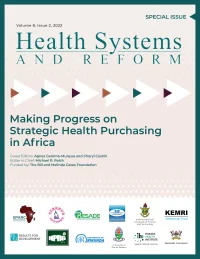Attributes and Organizational Factors that Enabled Innovation in Health Care Service Delivery during the COVID-19 Pandemic – Case Studies from Brazil, Canada and Japan
ABSTRACT
Innovation by health service organizations can enable adaptation to and transformation of challenges caused by health shocks. Drawing on results from case studies in Brazil, Canada, and Japan, this study looked at innovations the study hospitals introduced in response to challenges caused by COVID-19 to identify: 1) attributes of the innovations that make them conducive to adoption; and 2) organizational factors that facilitate the creation and implementation of innovative health care approaches during health system shocks. Qualitative information was gathered using key informant interviews, participatory observations at the study hospitals and a review of relevant documentation. A thematic approach was used for analysis, and a cross-country comparison framework was prepared to synthesize findings from the case studies in the three countries. In response to the disruptions caused by COVID-19, the study hospitals undertook innovative changes in services, processes, organizational structures, and operational policy. The driving force behind the innovations was the need and urgency generated by the unprecedented nature of the pandemic. With COVID-19, if an innovation met the perceived needs of hospitals and provided an operational advantage, some level of complexity in the implementation appeared to be acceptable. The study findings suggest that for hospitals to create and implement innovations in response to health shocks, they need to: have adaptive and flexible organizational structures; build and maintain functioning communication systems; have committed leadership; ensure all staff share an understanding of hospital organizational and professional missions; and establish social networks that facilitate the creation and implementation of new ideas.
Members and SHERPA Teams

Lara Gautier
Professor, Département de Gestion, d’Évaluation et de Politique de Santé, École de Santé Publique, Université de Montréal

